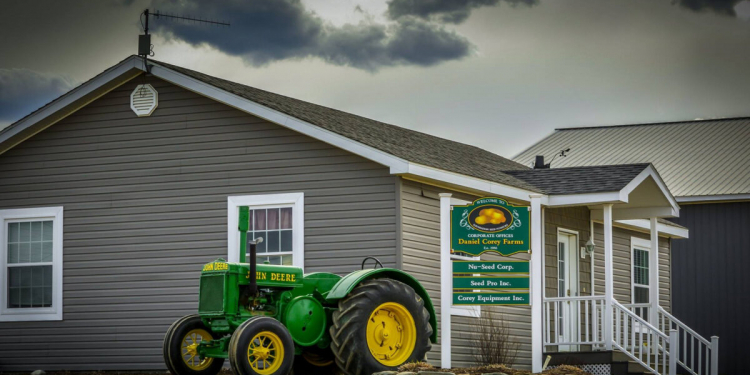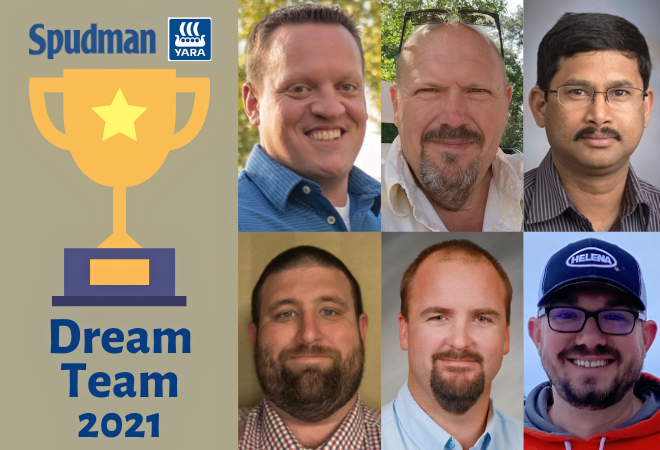Some potato farms in Aroostook County, Maine have histories dating back to the early 1800s. Daniel Corey’s operation is not one of them, however.
Corey started his namesake operation — Daniel J. Corey Farms — in 1986 with 52 acres of commercial potatoes. Corey had processing contracts (including with McCain Foods) but saw growth opportunities with seed potatoes, which he switched to in 1990.
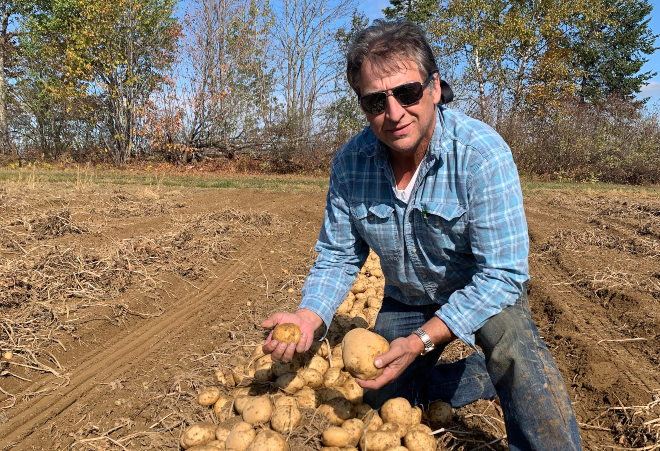
Over the past 35 years, Corey’s Monticello, Maine potato operation has expanded to include a tissue culture lab, three greenhouses and about 260 acres of Field Year 1 and 2 seed. That’s just the Seed Pro arm of the business model. Corey Farms also has hundreds of acres of commercial seed, which is sold and shipped all along the Eastern seaboard.
In addition, there are shipping and grain arms of the operation in Maine. In 2015, Corey expanded to northeastern Florida with 50 acres of commercial potatoes for the tablestock market. The Florida farm — called DeLee Produce — is now about 400 acres of red, yellow and white tablestock potatoes and 300 acres of broccoli.
Seed Pro, established in 2006, currently produces about 65 varieties of minitubers and early-generation seed, but that’s continually changing as the Coreys add new varieties and subtract older ones.
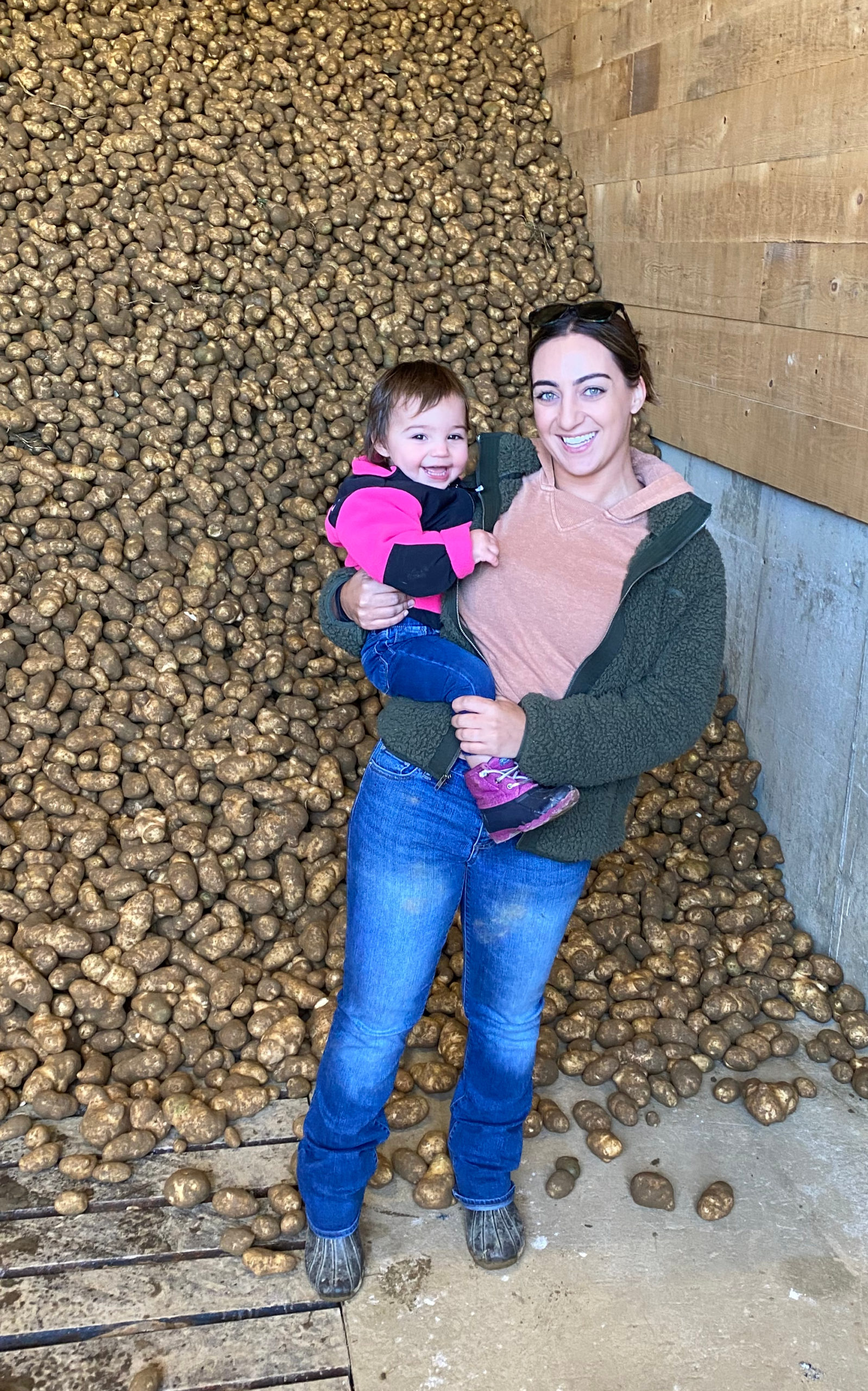
Daniel Corey’s daughter, Sara Corey Parker, grew up working on the farm. Like many children of growers, she had sights set on something else for her future, but realized the grass isn’t always greener away from the farm. She started on a path to become a pharmacist, but changed course once she got a taste of it. In 2012, she took over as Corey Farms/Seed Pro director of agronomy and variety development.
Corey Parker sat down with Spudman earlier this year to talk about the business.
Spudman: Could you expand on your role?
Sara Corey Parker: I wear a lot of hats. My official role is director of sales and variety development, so I do all the sales. I’m also involved in variety development, day-to-day operations, planting, harvesting — I’m very hands-on. With the exception of planting and harvesting, I’m usually behind-the-scenes in the office. We’ve got a lot going on, so I’ll do whatever I need to do.
Why did you decide to come back to farming?
SCP: I went to school for pre-pharmacy, my bachelor’s is actually in chemistry. I started doing internships at Walgreens and Walmart and places like that and I thought, “This is just not for me.” Of course, I always wanted to get away from the farm because when you’re a kid you’re forced to work there and harvest and all that. I’d say by my junior year of college, I knew I wanted to come back. … I was still working (at the farm) in the summers, and I told (my father), “I don’t think I’m going to keep going for pharmacy, I’m going to come back.” He was very encouraging.
How do you go about choosing varieties?
SCP: I work with a lot of different companies and their variety development programs. So, I’ll bring on varieties they’ve done research on and want to introduce into their programs. I also work with breeding programs — Cornell, USDA, Aroostook Farm in Maine — all sorts of different breeders and work with their up-and-coming varieties to see what I can replace in my own program. You’re always looking for the new best thing — what yields more or doesn’t scab or have storability issues. So, it’s really just constant research with really networking with breeders and other programs.
Any favorites?
SCP: My new favorite would be the Natascha. She’s great! (laughs). It’s a new yellow variety. She seems to be taking the place of Satina in the south and the place of Yukon Gold in the north. A lot of my guys in Maine are fresh-packing her, and she’s great. In Florida, I’ve never seen a more beautiful potato. They just don’t bruise.
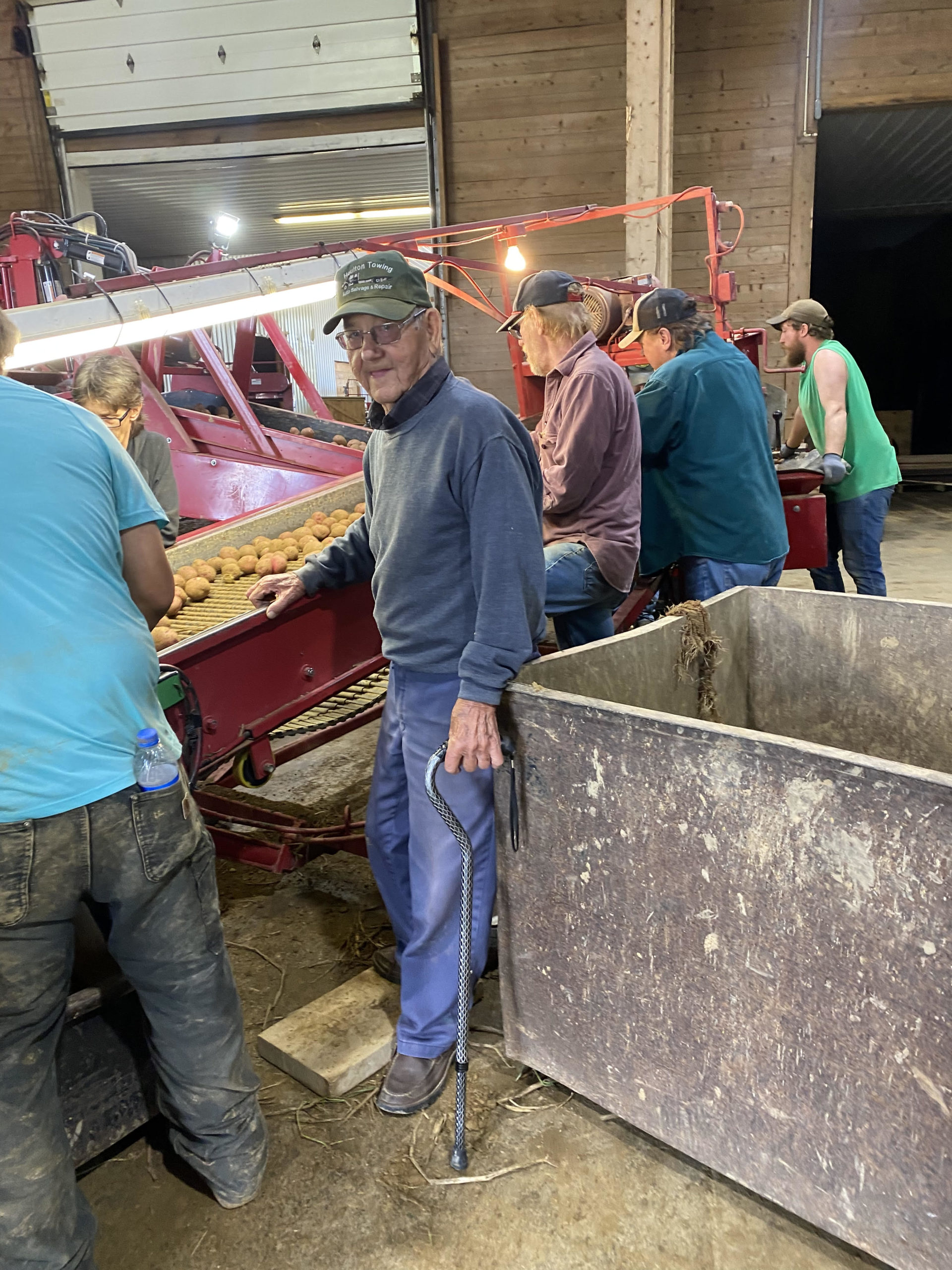
What spurred the decision to expand to Elkton, Florida?
SCP: Dad has been selling to that region since the ‘80s, so he’d made a lot of relationships there. A buddy of his down there kind of retired, and he brought him out of retirement. … It’s really taken off. We started with a 50-acre hobby farm that is now over 500 acres. … It’s also nice to have the ability to try out new varieties on our own commercial farm to see how they do.
What are the biggest differences between growing in northeast Florida and northeast Maine?
SCP: It’s very sandy. You get out there and it’s like, “How is anything going to grow in this year?” A wind storm could take half your row away. It’s very sandy. Without irrigation, you couldn’t do it. It’s so hot. There is a lot more risk with the weather. … A 10-inch rainfall happens, and you’re done. Flood irrigation is very interesting. They pull boards and back up the water into the fields and flood irrigate, which is a lot different from Maine, which is the overhead irrigation.
What are the biggest differences between growing seed and commercial potatoes?
SCP: Your diligence in making sure everything is sprayed and cleaned effectively. You have to be very careful with seed. We’re on a five-day sprayer schedule during the summer. So, in Monticello on 1,200 acres, they just don’t stop. A commercial guy can probably spray and then not go in for 10 or 15 days, depending on the type of season. We also have a roguing crew that goes in and looks for virus, looks for mixtures or any issues like that. And then it’s disinfecting. We are very diligent with disinfecting everything, like boots, for example.
Climate change is a big topic right now. Have you noticed any changes as far as rising temperatures affecting storage costs?
SCP: Yes. We’ve bought four new AC units to keep our seed cooler in the spring because it’s getting warmer earlier. People are, for whatever reason, still taking their seed at later dates. We have to keep it cold so everything has a nice, healthy product going out into mid-May or even into June.
— For more with Sara Corey Parker, check out episode 18 of “The Potato Field” podcast.

